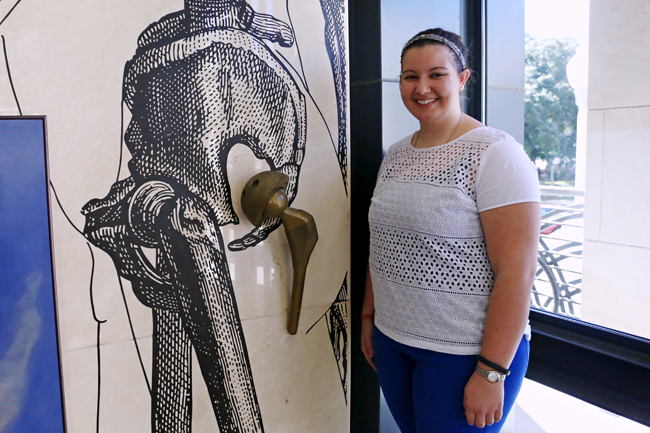One UT undergraduate’s research could lead to a cheaper, quicker way to detect diseases, such as leukemia and multiple sclerosis, especially in developing countries.
“The reason that we’re doing this work is to create a diagnostic device,” Courtney Koepke, biomedical engineering and Plan II senior, said. “You could do a blood test, or, depending on the fluid the protein is overrepresented in — like cerebral or spinal fluid — you could test that fluid with this device and be able to tell if a person has this certain disease or not.”
The research proposed a technique to detect diseases by recognizing elevated levels of protein that occur during diseases, similar to the way antibodies target foreign objects in the body, Koepke said. University researchers created a device that has the potential to analyze these proteins and determine if a disease is likely to be present. Koepke said she deals with molecular imprint polymers, or plastic antibodies, developed in a lab to seek out excess proteins, which are abundant when a person is infected.
Developing countries could benefit most from the research, Koepke said, because they often fight diseases with naturally occurring imported antibodies, which are unstable and expensive.
“That’s what really attracted me to this research — the kind of component that it could really help people that have less resources available to them, especially in medical and healthcare respects,” Koepke said.
The research could lead to easier access for people in developing countries, according to Heidi Culver, third-year biomedical engineering PhD student and Koepke’s graduate supervisor.
“We hope that this work will contribute to lower-cost diagnostic tests,” Culver said.
In April, Koepke will attend the Society for Biomaterials Conference in Charlotte, North Carolina, to give an oral presentation on her research.
“The conference will be almost solely grad students and professors,” Koepke said. “I’ll be one of few undergrads there. It’s a little intimidating, but I’m really excited.”
Sadie Witkowski, neuroscience and Plan II alumna, said she had similar feelings as an undergraduate researcher.
“As an undergrad, you feel uncertain and insecure, and suddenly you’re supposed to be on the level of established professionals,” she said. “But as long as you can talk about your research and its potential impacts, you’re right up there.”












